Random Acts of Genealogical Kindness (RAOGK)
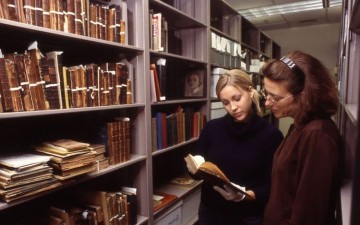
Random Acts of Genealogical Kindness (RAOGK) is a global volunteer organization.
The purpose of this site is to help others obtain copies of documents, pictures of tombstones, etc., that can not be obtained easily by those who do not live in the area of their ancestors.
At one time there were thousands of volunteers in every U.S. state and many international locations. They helped thousands of researchers all over the world.
Is this your first visit to Random Acts of Genealogical Kindness? We want your visit to be a successful one.
We also provide U.S., State by State and County by County Research guides. In these you will find resources and information that can be found.
Genealogy Books for Sale
I am raising money by selling my genealogy library. I have a list of books for sale at https://raogk.org/books/
Email me if you are interested in a book or I can bundle deal multiple books…. All are dealing with southerner states .
Our staff has put together a FAQ and a list of Guidelines for Requesters and Volunteers below.
Federal, State, County and local Records
The records below will inform you of what type of records can by found in each area, dates of availability and addresses, links and contact info to those records.
For many families, understanding their own ancestry is very important. But, it can be hard to go back more than just a couple of generations.
So, it is a good idea to know what resources you have to get the job done. Genealogical research in each state is helped by great research facilities and records for family trees.
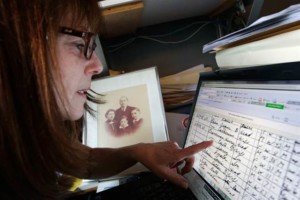 Many countries took periodic censuses to keep track of various aspects of the population.
Many countries took periodic censuses to keep track of various aspects of the population.
Where available, these records often include helpful details about your ancestors and their families and allow you to pinpoint their location at a particular point in time.
While the questions in census records vary from place to place, and year to year, you can find information like names of other household members, ages, birthplaces, residence, occupation, immigration and citizenship details, marriage information, military service and more. LEARN MORE ABOUT CENSUS RECORDS
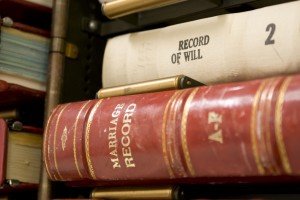
The paper trail left behind by these major and trivial legal events can provide incredible clues and insights into the lives and times of our ancestors.
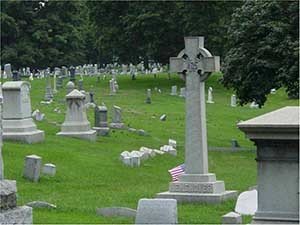 Cemetery records and headstone inscriptions are also sources of birth and death information.
Cemetery records and headstone inscriptions are also sources of birth and death information.
The records of this type most commonly found are church burial registers, sextons’ records, cemetery deed and plot registers, burial permit records, grave opening orders, and monument (gravestone) inscriptions.
Such records usually supplement standard sources of genealogical information, but sometimes they represent the only information that can be found pertaining to the birth and death of an ancestor.
Using these records effectively requires specific knowledge of their content, availability, and location.
 Most Church records predate civil records and therefore record vital events, providing birth, marriage, and death details that might otherwise be lost.
Most Church records predate civil records and therefore record vital events, providing birth, marriage, and death details that might otherwise be lost.
Aside from supplying names and dates, church records may show you associations between people and portray a family’s position in the community.
In addition, entries of a personal nature are not uncommon, and these can provide you with a glimpse into an ancestor’s identity or behaviors.
Family Bibles are invaluable research tools. Despite the fact that the dates may not be guaranteed, Family Bibles are a tangible link with past generations.
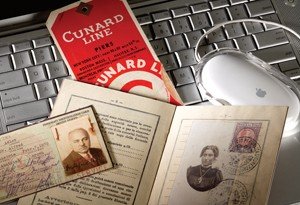
Yet, unless the ancestors arrived relatively recently in the United States, family origins may have been forgotten.
Because most foreign records are kept at the town level, discovering the name of a native town, county, or parish is an important goal.
Without that information, it is impossible to know where to conduct research in the country of origin.

Land records provide two types of important evidence for the genealogist.
First, they often state kinship ties, especially when a group of heirs jointly sells some inherited land.
Second, they place individuals in a specific time and place, allowing the researcher to sort people and families into neighborhoods and closely related groups.

The amount of documents and their contents can differ depending on the time period.
If here is a large amount of property to settle, then multiple jurisdictions may carry records.
These records are rarely found together in one place.
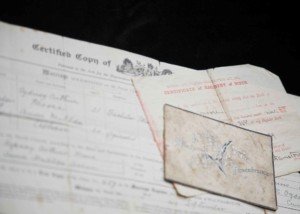 Vital records, as their name suggests, are connected with central life events: birth, marriage, and death.
Vital records, as their name suggests, are connected with central life events: birth, marriage, and death.
These records are prime sources of genealogical information, but, unfortunately, official vital records (those maintained by county and state governments), are available only for relatively recent time periods.
Marriage records, the oldest of the vital records, will be considered first. The more recent records of birth and death will follow.
